Curated OER
Understanding Wilderness
Students research and analyze an historical wilderness issue or event after discussing opinions on preservation of wilderness and key players and events in the history of wilderness preservation. After research is complete, students...
Curated OER
French and Indian War
Fourth graders engage in activities that familiarize them with the causes of the French and Indian War. They discuss the problem that started the war, the countries involved, and the effects to come about as a result of the French and...
Curated OER
Socialism Past and Present
The theory of socialism can be a means to explore the economies of countries around the world.
Curated OER
Games Children Play
Help your middle schoolers recognize the similarities and differences between the games they play and those played by pioneer children. Using the Internet, they research a game of their choice and discover how it has evolved over time....
Curated OER
The Railroads and Settlement of the Great Plains
Enhance your American literature unit with this resource, in which readers access the Nebraska Studies website and read about "Railroads and Settlement." They search for a photograph of some aspect of the railroad from the Prairie...
Curated OER
Comparing Family Photos
Fourth graders bring in a family photo from home. They compare their photo to the Rawding family photo. Students share their conclusions orally. They use Venn Diagrams to organize their thoughts and observations.
Curated OER
Leif Erikson Day
Leif Erikson Day lessons breathe life into social studies classroom explorations.
Curated OER
Ellis Island: Gateway To America
Fifth graders study the immigration station on Ellis Island. Through several activities, they see that immigrants who arrived at Ellis Island came to America from different countries, mostly those in Europe, for a variety of reasons.
Curated OER
Evita: The Woman Behind the Myth
Pupils explore the meteoric rise of Eva Duarte Peron, First Lady of Argentina. Born in poverty, Eva Peron rose to become the most powerful woman in Latin America and one of the most powerful women in the world.
Curated OER
The Railroad Booms!
Learners discover how the railroads contributed to the interdependence between farms and towns. Using the railroads, they describe the effect of them on western settlement and the relationship between their location and the availability...
Curated OER
Who Were the Settlers?
Learners examine why people move from one country or area to another. Using photographs, they analyze the culture and lifestyles of people pictured in the image. They research and explain the daily experiences of the settlers to...
Curated OER
Breaking News English: Half of Europe's Citizens are Bilingual
In this English worksheet, learners read "Half of Europe's Citizens are Bilingual," and then respond to 47 fill in the blank, 7 short answer, 20 matching, and 8 true or false questions about the selection.
Curated OER
Watermelons
Students discover the origins and different uses of watermelons. Using the internet, they find photographs of the fruit and reading about them in primary source documents. As a class, they plan a community activity in which they use a...
Curated OER
Has the Look of Nebraska Changed from 1819 to the 21st Century?
Eighth graders examine and analyze maps of early Nebraska. Using the maps, they compare and contrast them to those of today and identifying how the area has changed over time. They complete a worksheet over the differences in the maps...
Curated OER
The Homestead Act
Eighth graders analyze the Native American's viewpoint of the Homestead Act. Using one Native American group who lived in Nebraska, they write a letter to the editor of a local newspaper discussing the Homestead Act and how it affected...
Curated OER
African American Homesteaders
Students analyze the reasons African-Americans settled in the area to be known as Nebraska. Using primary source documents, they read about the challenges they faced and compare their growth and distribution of African-Americas in the...
Curated OER
Why Do You Live Where You Do?
Eighth graders identify reasons why settlers bought land from the railroad and not a Homestead grant. Using that information, they compare and contrast the types of land given in each situation. They discuss the reasons why given...
Curated OER
The Irish Potato Famine and Immigration
Fifth graders study how the potato famine affected the Irish population. They speculate on how the Irish were viewed by the English and the new Americans. They examine why the Irish immigrated to the new colonies. and evaluate how new...
Stanford University
Stanford History Education Group: The Dark Ages
[Free Registration/Login Required] Primary and secondary source documents, timeline, PowerPoint, and lesson plan reinforcing life during the Dark Ages in Europe. Over several days students will come to understand all aspects of this...
World History Encyclopedia
World History Encyclopedia: Alaric
Encyclopedia entry provides detail about Alaric and the sack of Rome. Includes photos, timeline and links to further reading.
Other
Welcome to Puerto Rico: History
A chronological timeline highlighting the history of Puerto Rico from the earliest times of the Taino tribe, to the coming of the Europeans, to the fight for its strategic position, to the 1600's.
BBC
Bbc: A Timeline of the European Union
An interactive timeline starting in 1948 stretching to the present that examines the key events in the creation, growth, and development of the EU.
Metropolitan Museum of Art
Metropolitan Museum of Art: Timeline of Art History Gothic Art
Explore the history of Gothic art through amazing images and links to vast amounts of information.
Other
Houghton Mifflin Harcourt: European Renaissance and Reformation, 1300 1600 [Pdf]
Chapter 17 of a textbook on world history (36 pages). Includes a Renaissance timeline and map. Looks at the conditions that led to the Italian Renaissance, major artists, writers, the Northern Renaissance, the Elizabethan Age, the...






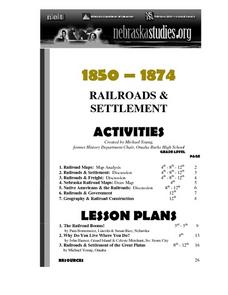






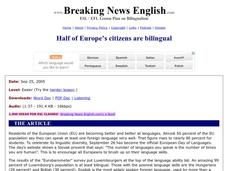
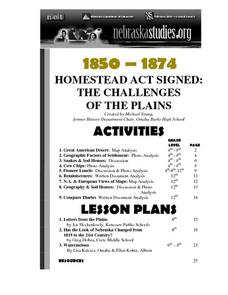





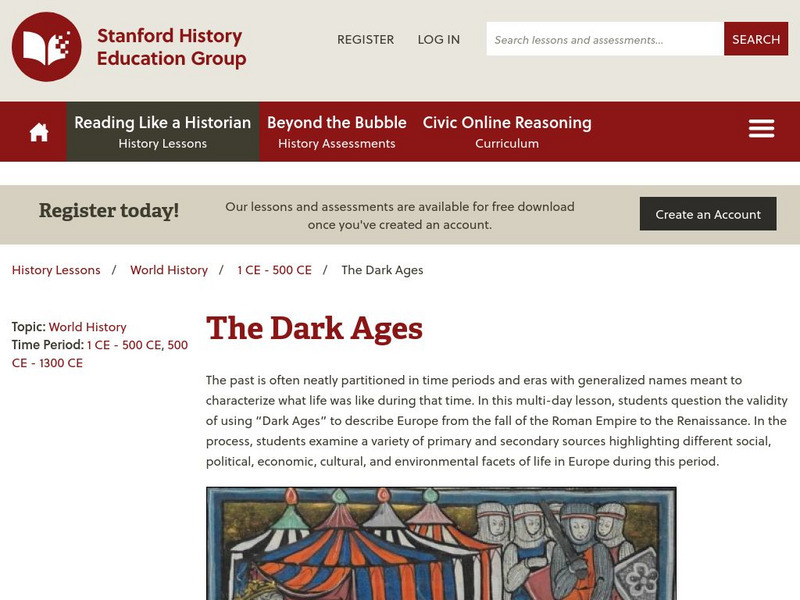
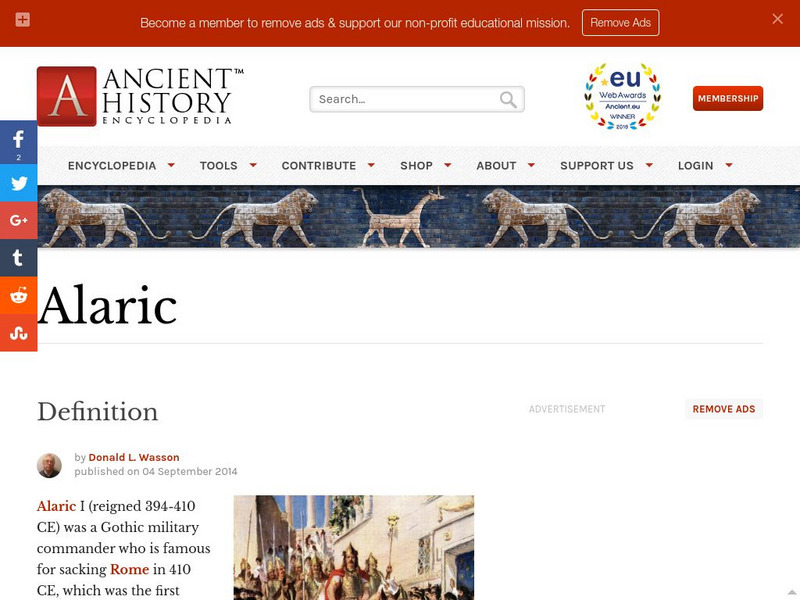

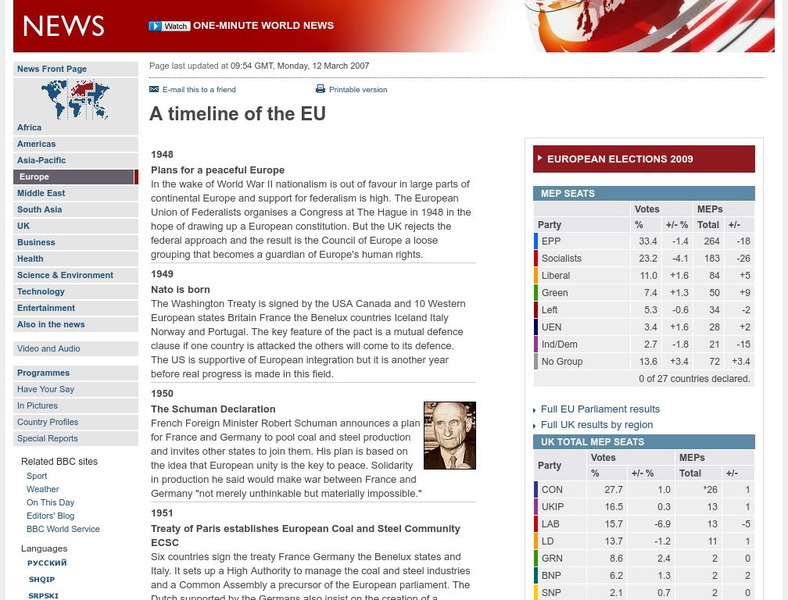
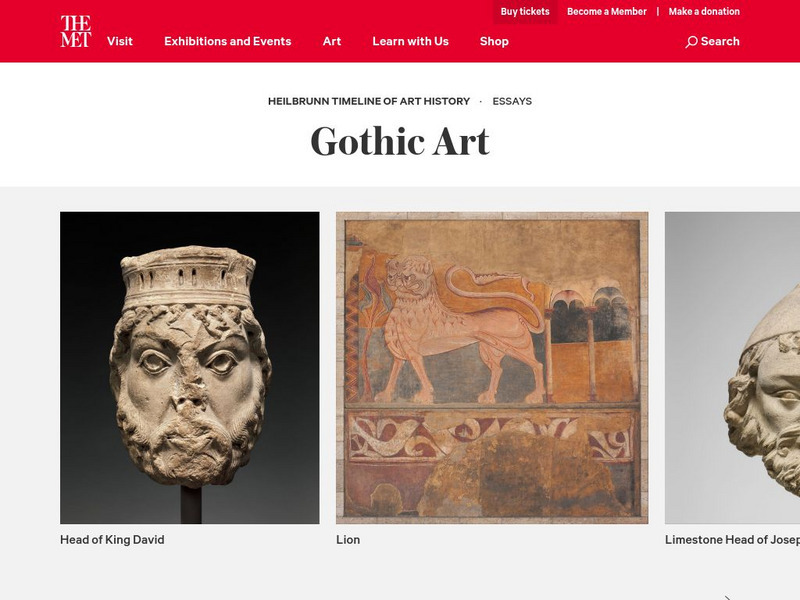
![Houghton Mifflin Harcourt: European Renaissance and Reformation, 1300 1600 [Pdf] eBook Houghton Mifflin Harcourt: European Renaissance and Reformation, 1300 1600 [Pdf] eBook](https://d15y2dacu3jp90.cloudfront.net/images/attachment_defaults/resource/large/FPO-knovation.png)